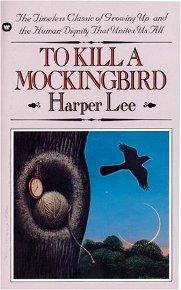
When I decided to write fiction, I bought a small library’s worth of books on various aspects of the craft: plot structure, characterization, dialogue, self-editing, etc. They have been extremely helpful. But there are some things that are better caught, than taught. That’s why I highly recommend reading good fiction whether you are an aspiring writer or a seasoned pro. That’s also how I can justify reading a novel when my own book deadline is looming on the not-so-far horizon. Today I’d like to share with you a few of the passages I’ve underlined in my books, as well as the notes I’ve written in the margins. Hopefully this will inspire you to pick up a book and feel good about the investment of time! From To Kill a Mockingbird by Harper Lee:
Maycomb was an old town, but it was a tired old town when I first knew it. In rainy weather, the streets turned to red slop; grass grew on the sidewalks, the courthouse sagged in the square. Somehow, it was hotter then: a black dog suffered on a summer’s day; boy mules hitched to Hoover carts flicked flies in the sweltering shade of the live oaks on the square. Men’s stiff collars wilted by nine in the morning. Ladies bathed before noon, after their three-o’clock naps, and by nightfall were like soft teacakes with frostings of sweat and sweet talcum. (page 5)
Harper Lee could have said that the town of Maycomb was really hot. Instead, she used the “show, don’t tell” rule masterfully. I can almost feel the sweat trickling down my spine as I read this. I love the simile in the last sentence, too.
From Lady in the Mist by Laurie Alice Eakes:
Mist swirled around her, smelling of the sea and the tang of freshly turned earth, muffling the click of her heels on cobblestone and brick pavement. (Page 8 )
Love this. Usually mist is described in visual terms, but Laurie Alice adds the smell and sound of it, too, for a much richer description.
“Press-gang.” The word burst from her like a curse, and her heart began to race. Her mouth went dry, tasting bitter. She tried to scramble to her feet. She needed to warn the village men to stay inside. But her cloak and skirts tangled around her, holding her down. “Let me help you.” Still speaking in an undertone, he stooped before her. She caught an exotic scent like sandalwood, saw no more than a shadowy outline and dark hair tumbling around features pale in the misty gloom. (page 12)
Laurie Alice put all five senses into these two brief paragraphs. Sight: the shadowy outline, dark hair, pale features. Sound: the word bursting from her, the undertone of his voice. Smell: sandalwood. Taste: her mouth tasting bitter. Touch: her mouth going dry, the cloak and skirts tangling her legs.
Images of the Englishman filled her head, tingled along her fingers, danced down her spine. She despised the way she thrilled to his flirtation, his touch. (page 15)
Nice! She shows how a memory makes us feel, physically. From My Name is Mary Sutter by Robin Oliveira:
A second floor crouched between a third and the first. Low ceilinged, claustral, darker even than James Blevens’s surgery that day in April, the hallway angled through the series of squat additions that made up the Union Hotel. (page 117)
Robin uses personification (crouched, squat) to give this setting a personality, a characterization all its own. The following excerpt is an exchange between a doctor at the Union Hotel hospital during the Civil War, and the nurse, Mary Sutter.
They moved on. “This one can’t breathe.” “Give him whiskey.” “This one can’t walk.” “Give him whiskey.” “That one can’t stop itching.” “Give him whiskey.” “This one has got diarrhea.” “Haven’t they all?” “We’ve run out of quinine.” “Give oil of turpentine.” “We’ve run out of turpentine.” “Then boil some willow bark and put it in whiskey and give it to him.” “We’ve run out of whiskey.” (pages 197-198)
This rapid-fire dialogue shows very economically the limited resources and hopeless situations they ran into all day long. Very effective. From Heiress by Susan May Warren: I read this on my Kindle, so I don’t have page numbers for these excerpts.
The words seemed to slither out, and Jinx tasted in them the poison she intended.
Wow. Susan added touch and taste to “the words” for a drama you can feel. Susan also does a great job adding meaningful beats of hesitation into dialogue, such as the examples below (all from different scenes):
He let her words dissolve in the frosty air before he answered. She stared at her curved hand in his, unable to meet his eyes, tasting her heartbeat. She looked up at him, words netted in her chest. Jinx stilled. Something in Esme’s voice—she couldn’t be serious. The silence tore through Jinx like a dagger. She’d longed to flee, her heart already outside her chest, but horror affixed her to the parquet floor. With certainty, the truth slid through her, solidified, turned her heart to marble. The thought pressed into her, grew blades. He looked away then, as if his words cost him.
From A Heart Revealed by Julie Lessman: While reading novels by Julie Lessman, I noticed that she very rarely uses the word “said” in her dialogue. She usually uses beats instead of tags, and it’s far more effective that way. For example, she could have written: “All right, Charity, I’ll talk,” he said. “I want you to leave me alone…” Instead of saying “he said” (a tag) she used a beat, injecting much more emotion:
“All right, Charity, I’ll talk.” He faced her point-blank, his voice a cold blade with deadly intent. “I want you to leave me alone…”
Amazing difference! She does this throughout the book. Using my Kindle, I did a search for “tone” in A Heart Revealed to see other ways she described the characters’ voices, and came up with pages and pages of examples like the following phrases:
A tinge of hurt in her tone Affection bated her tone Tease lacing her tone An edge of respect in her tone Tone hushed with respect Worry threading her tone Sincerity softening the plea of her tone In a tone as tight as the muscles in his face Tears in her eyes betrayed the gruff edge of her tone. Her tone was as tart as one of those lemon drops she kept on her desk. He tried to temper the edge in his tone Hint of humor in her tone Shame evident in his tone Wistfulness laced her tone He closed his eyes again, tone tired and lips flat. In a clipped tone With finality in his tone A teasing brogue slipping into her tone Contrition heavy in her tone Her tone rang with an authority she seldom employed. In a rigid tone Apology laced his tone Tone void of remorse (or warmth) Confused by the bite in his tone The sharpness of his tone heated her cheeks. Accusation thick in his tone Mirth laced her tone. His tone was suddenly strained.
Up until I did this search (and this list is not the complete results!) I had not been thinking of all the ways I could describe a character’s voice to portray emotion. See, Julie? I told you I was reading your novels for research! :) These are just five novels that have inspired me to improve my own writing in various ways. But virtually every novel I read shows me something, so I can never read a book without a pen in my hand. If it’s a library book, I keep a notebook and pen handy so I can copy down what I notice. Tell me—what have you underlined in a book lately, and why? I would love to know!

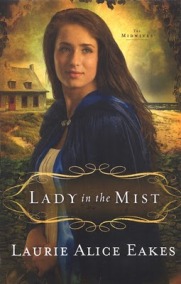
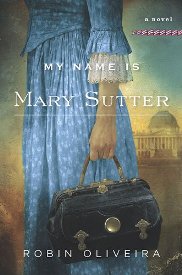
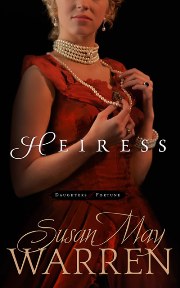
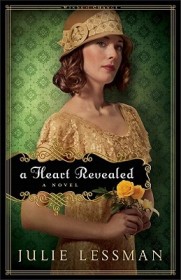
Comments
Add new comment